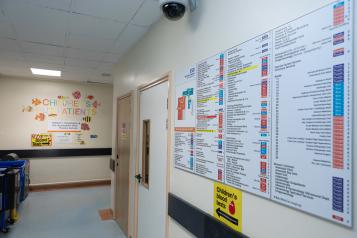Dangers of Corridor Care

The Royal College of Nursing (RCN) said evidence provided by more than 5,000 of its members across the UK this winter showed the dangers of ‘corridor care’. Corridor care: 'Devastating testimony' shows patients are coming to harm | News | Royal College of Nursing. Nurses warn ‘corridor care’ put patients at risk as staff are unable to access vital equipment such as oxygen, heart monitors and suction equipment, and do not have the time and space to provide CPR.
Lynn Cawley, Healthwatch Shropshire Chief Officer, said:
“Hospitals are not required to report instances of such care and the impact it has on patients, staff and relatives. We would like to hear about experiences of being treated in inappropriate spaces to build up a local picture and also so we can share them with Healthwatch England to continue to ensure the patients voice is heard at the highest levels.
Chris McCann, deputy chief executive at Healthwatch England said:
“These devastating stories shared by nurses in the report by the RCN echo experiences that people tell us about. This includes a 75-year-old who spent 15 hours in an A&E corridor chair, eight hours on a trolley in a storage room and a further two hours in a ward corridor before finally being admitted.
“We applaud nurses for calling out this undignified and unsafe practice. Patients say they’re witnessing stressed and overstretched staff who are valiantly trying to cope with these extreme pressures.
“As a first step, we’re joining with other organisations in calling on the government to commit to transparency on the true extent of corridor care by ensuring figures are published for each hospital on the number of people being held in corridors or other inappropriate spaces."
Joint-letter about the dangers of ‘corridor care’ | Healthwatch


